Key takeaways:
- Effective mentorship thrives on trust, open communication, and accountability, fostering growth and resilience in entrepreneurs.
- Key skills for mentorship include active listening, constructive feedback, and empathy, which help build deeper connections and encourage personal development.
- Setting specific, actionable goals for mentorship meetings enhances productivity and allows for regular reassessment to align focus with evolving needs.
- Preparation for meetings, including having a clear agenda and understanding the mentor’s background, can lead to more meaningful and tailored discussions.
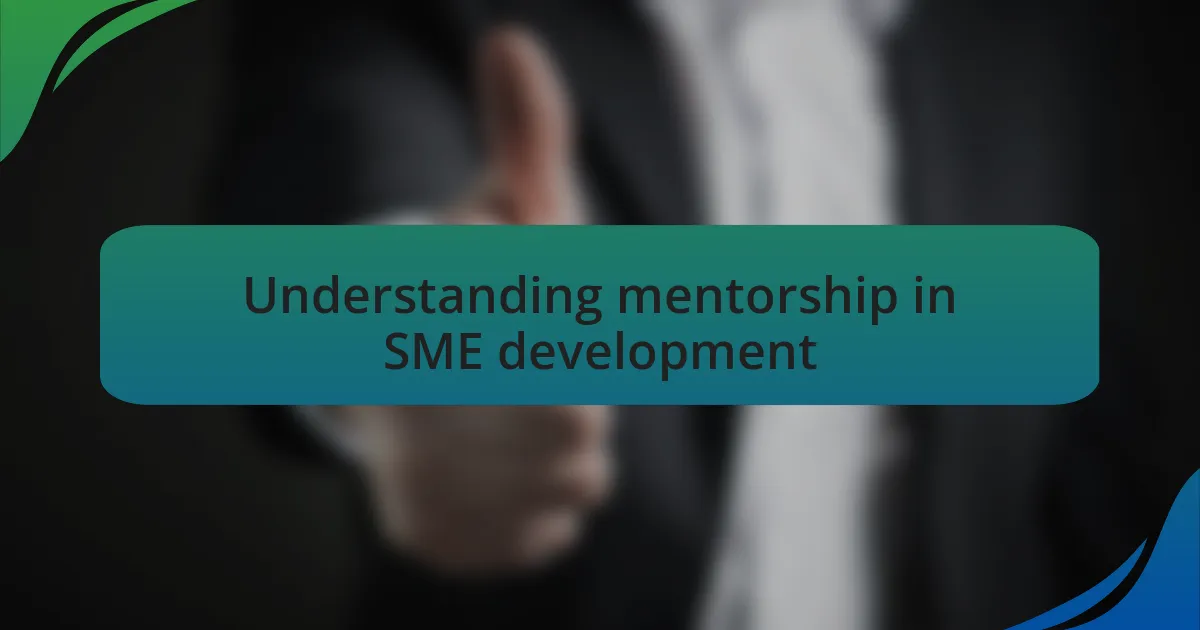
Understanding mentorship in SME development
Mentorship in SME development serves as a lifeline for many burgeoning entrepreneurs. I recall a time when a mentor of mine helped me navigate a particularly challenging market entry. Their insights not only clarified complex strategies but also provided the emotional support essential for overcoming my self-doubts.
When I think about the essence of mentorship, it strikes me how vital it is to build trust and open communication between the mentor and the mentee. Have you ever had someone believe in you when you struggled to see your own potential? That kind of connection can truly ignite a passion for growth, helping SMEs flourish in competitive landscapes.
The impact of effective mentorship can be profound, offering not just guidance but also accountability. I remember setting specific goals with my mentor, which kept me focused and motivated. It makes me wonder: how often do we overlook the simple act of checking in with one another? Building a support system within SME development can lead to transformative success.
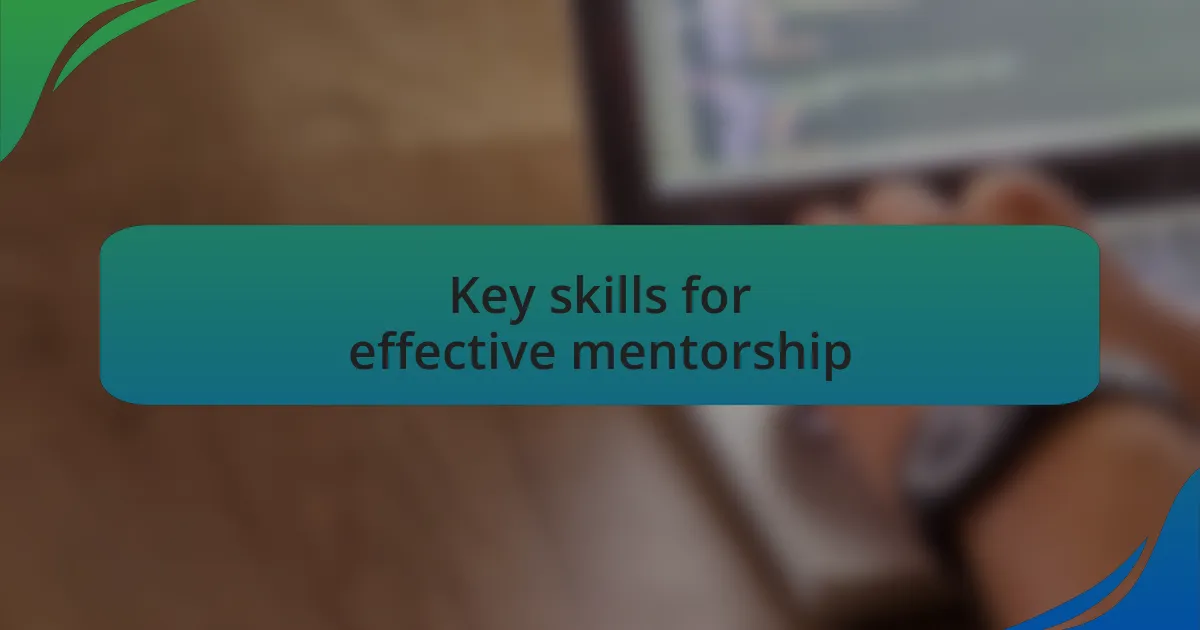
Key skills for effective mentorship
When I think about key skills in mentorship, active listening stands out as foundational. I’ve learned that truly hearing someone’s concerns can create a safe space for exploration. I remember a moment in my own journey when my mentor paused and encouraged me to share my thoughts freely, which revealed not only my challenges but also my unspoken aspirations. Don’t you find that often, our most profound insights emerge when someone listens without judgment?
Another skill that proves invaluable in mentorship is the ability to provide constructive feedback. It can be daunting to receive criticism, but I’ve found that a mentor who frames feedback positively can make all the difference. Once, after a disappointing presentation, my mentor highlighted my strengths first, then offered insights for improvement. It filled me with encouragement instead of discouragement. Have you experienced that kind of constructive dialogue?
Empathy also plays a critical role in effective mentorship. From my experience, when a mentor demonstrates genuine understanding of a mentee’s struggles, it not only fosters a deeper connection but also encourages resilience. I remember confiding in my mentor about my fear of failure. Their empathetic response reassured me that setbacks are part of growth. Isn’t it interesting how sharing vulnerabilities can actually strengthen our commitment to push forward?
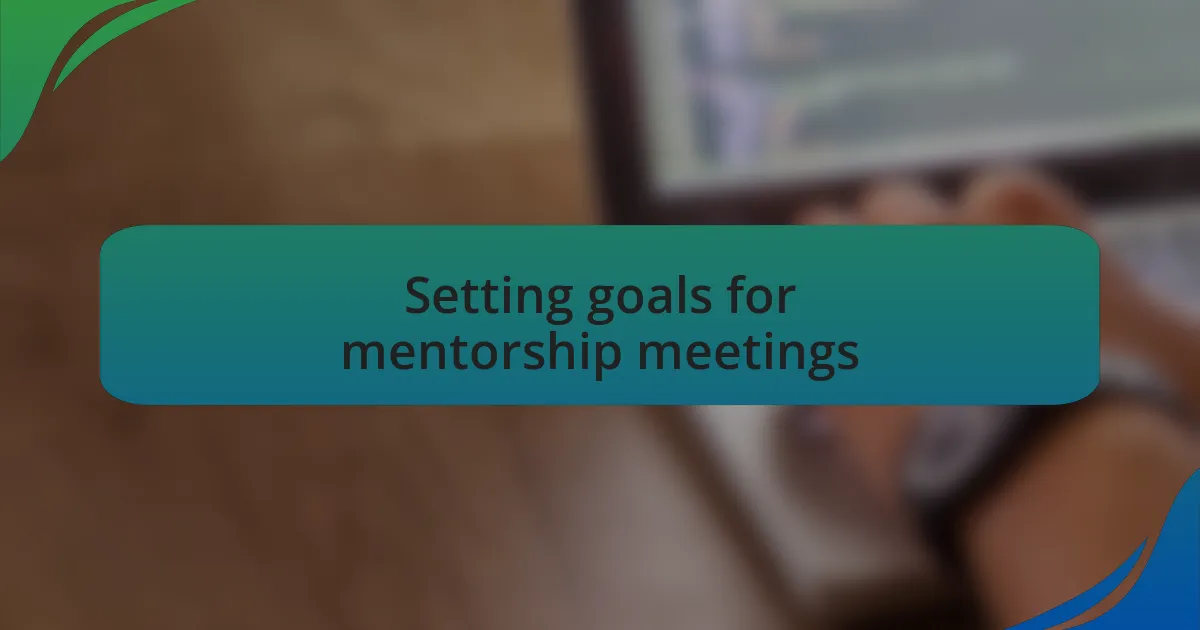
Setting goals for mentorship meetings
Setting goals for mentorship meetings is essential for driving progress. I often start these discussions by identifying what I hope to achieve, whether it’s gaining new skills or overcoming particular challenges. I recall a meeting where I expressed my desire to enhance my networking abilities. By setting that clear goal, it allowed my mentor to tailor our conversation to those specific needs, making our time together incredibly productive.
In my experience, breaking down larger objectives into smaller, actionable steps can greatly enhance clarity. I remember setting a goal to improve my public speaking; my mentor suggested I tackle this by seeking out local opportunities to present. Not only did this make the goal feel more achievable, but it also instilled a sense of urgency in me. How often do you find that actionable steps can keep you focused and motivated?
Moreover, regularly reassessing and adjusting these goals can pave the way for continued growth. There have been instances where, after several meetings, I found that my priorities had shifted. By revisiting our initial objectives, my mentor and I could realign our focus, ensuring that our sessions remained relevant and inspiring. Have you experienced similar shifts in your journey, where a simple goal reevaluation led to unexpected breakthroughs?
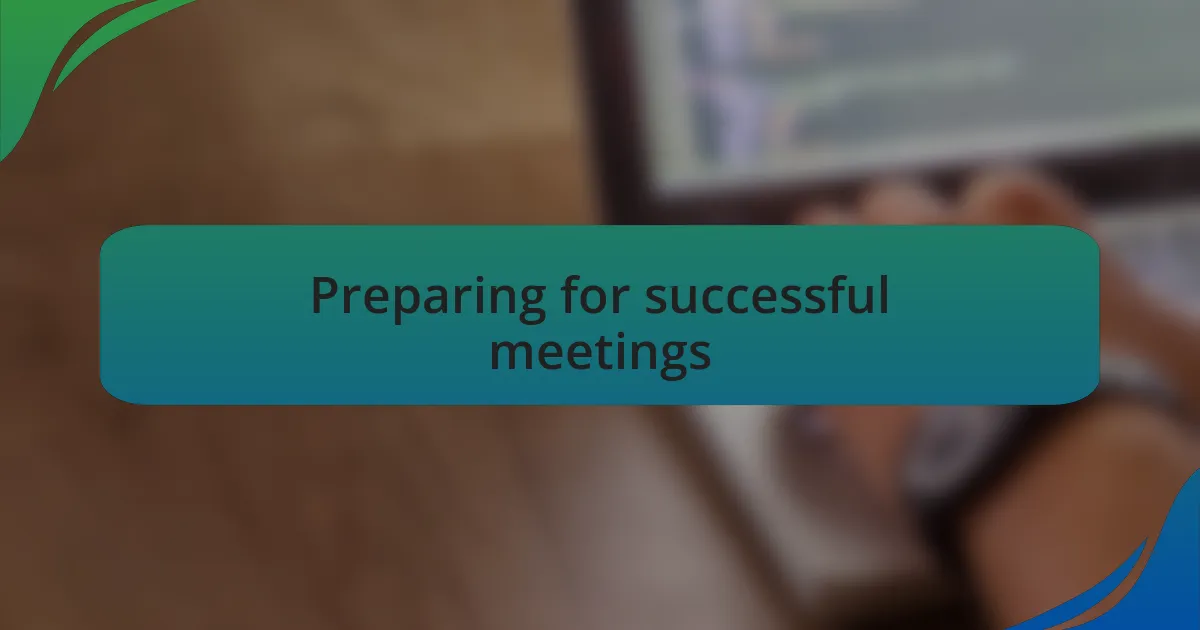
Preparing for successful meetings
Taking the time to prepare for mentorship meetings can make a significant difference in their effectiveness. I usually spend a few minutes before each meeting jotting down topics I want to discuss. For example, I once wrote down the challenges I was facing with time management, which led to a valuable conversation about prioritizing tasks and developing a daily schedule. Have you ever noticed that having a clear agenda can help you stay focused and make the most of your mentor’s insights?
Another strategy I find helpful is researching my mentor’s background or current projects in advance. In one meeting, I learned my mentor was involved in a project similar to mine, which sparked a rich discussion about strategies and potential pitfalls. This preparation not only demonstrated my respect for their expertise but also fostered a deeper connection. Have you noticed that understanding your mentor’s journey could open doors to more tailored advice?
I also believe in the importance of setting the right tone for the meeting. It’s crucial to create an open and friendly atmosphere where both parties feel comfortable sharing. Once, after discussing my goals and struggles candidly, I sensed my mentor felt more at ease to share their own experiences. Have you experienced how vulnerability can enhance the relationship and deepen the conversation?
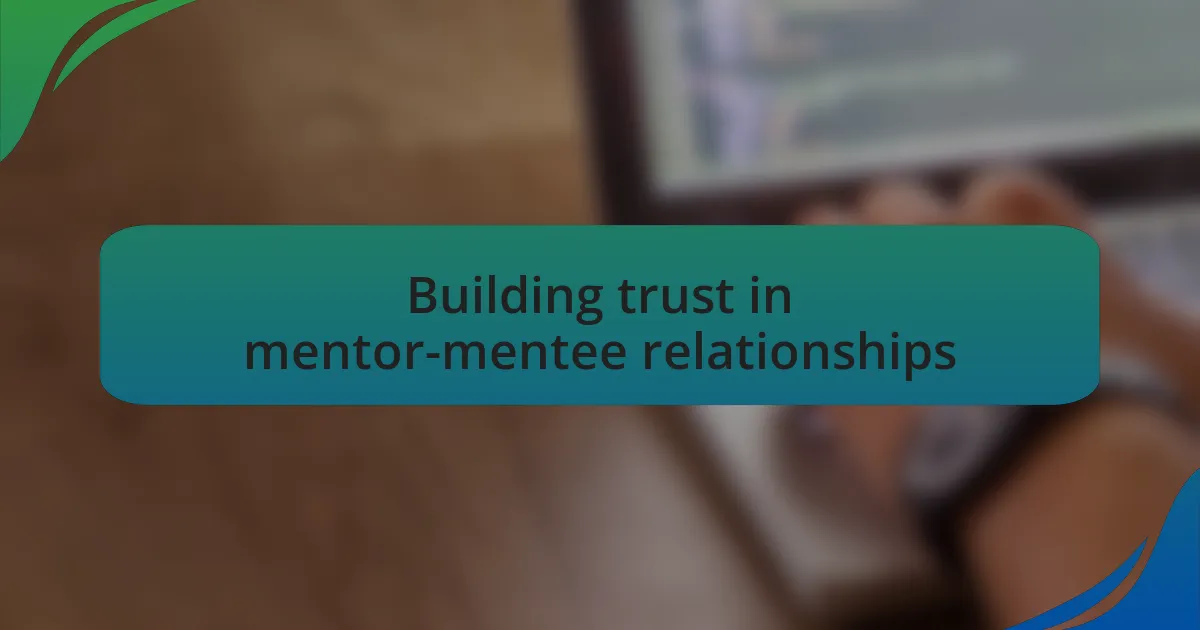
Building trust in mentor-mentee relationships
Building trust in mentor-mentee relationships is something I value deeply. I remember a time when I shared a fear of failure with my mentor. Instead of brushing it off, they opened up about their own struggles, which made me feel less alone. Have you ever found that sharing vulnerabilities can create a safe space for honest dialogue?
Another key component of building trust is consistency. I make it a point to follow through on commitments after our meetings. For instance, when we discussed a particular skill I wanted to develop, I made sure to practice and share my progress in the next session. This demonstrated my dedication and invited accountability into our relationship. Doesn’t it feel reassuring when someone sticks to their word?
Finally, I believe mutual respect is essential. I always listen actively and value my mentor’s perspectives, even when I might not fully agree. Once, during a discussion about career paths, my mentor suggested a direction I hadn’t considered. Initially, I hesitated, but I later realized their experiences broadened my viewpoint. Have you noticed how open-mindedness can enrich mentor-mentee dynamics?